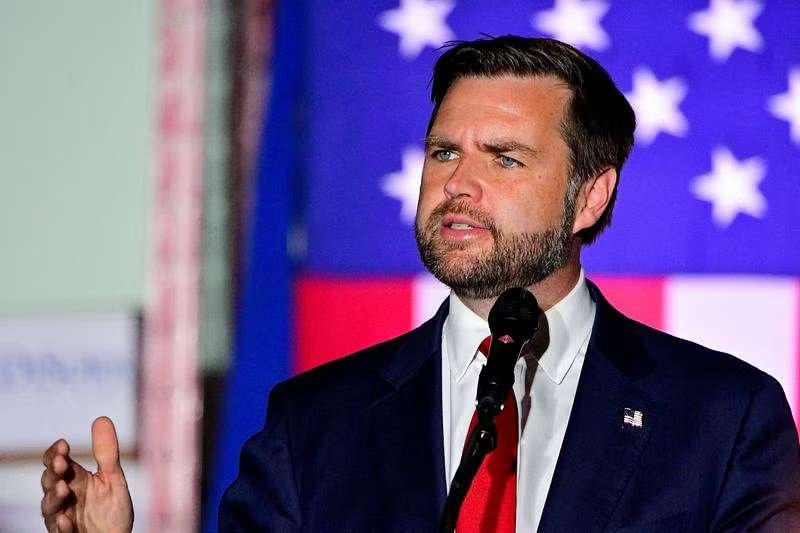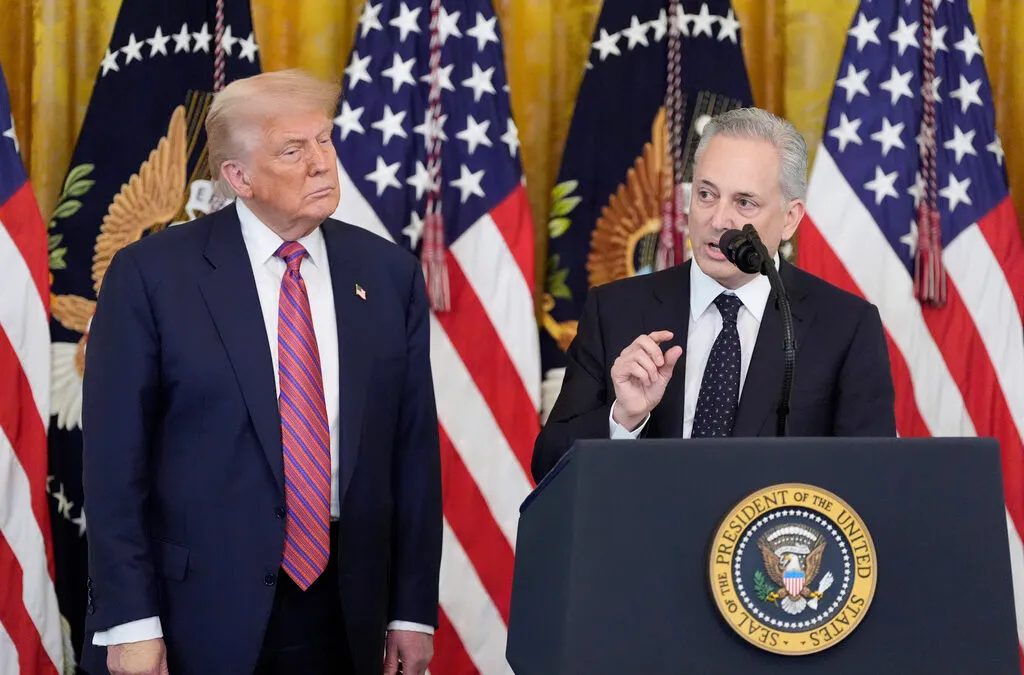JD Vance, the Republican Senator from Ohio, has cultivated a powerful network of tech industry donors to steer American politics further to the right. This network is characterized by its unique blend of traditional conservative values and a modern, tech-savvy approach to political influence. Vance, who gained national attention with his memoir Hillbilly Elegy and later as a venture capitalist in Silicon Valley, has leveraged his connections within the tech industry to build a formidable base of financial and ideological support.
This tech donor network is composed of influential figures in the tech world, many of whom share Vance's vision of a more nationalist, populist, and conservative future for the United States. These donors are not merely interested in supporting conservative candidates; they are actively involved in reshaping the Republican Party to better align with their views on issues like immigration, trade, and the role of Big Tech itself. This marks a significant shift from the traditional donor base of the Republican Party, which has historically been dominated by more conventional business interests.
One of the most notable aspects of this network is its focus on the cultural and economic anxieties of working-class Americans, particularly in the Midwest and Rust Belt regions. Vance and his donors argue that the traditional conservative focus on free markets and limited government has failed to address the concerns of these voters, many of whom feel left behind by globalization and technological change. Instead, they advocate for a more interventionist government approach that prioritizes American workers and industries, even if it means challenging established conservative orthodoxy on issues like trade and corporate regulation.
The influence of Vance's tech donor network extends beyond campaign contributions. It is also involved in funding think tanks, advocacy groups, and media outlets that promote its vision of conservatism. This multifaceted strategy is designed to shift the broader political and cultural discourse in the United States, moving it away from the centrist and globalist tendencies that have dominated both major parties in recent decades. By investing in the infrastructure of ideas, Vance and his allies hope to create a lasting impact on American politics that goes beyond any single election cycle.
In summary, JD Vance's tech donor network represents a new and increasingly influential force within American conservatism. By combining the financial resources of Silicon Valley with a populist, nationalist agenda, Vance and his supporters are working to shift the Republican Party—and American politics as a whole—toward a more right-leaning, interventionist stance that prioritizes the interests of American workers and challenges the dominance of globalist ideologies. This effort reflects a broader realignment within American politics, as both parties grapple with the challenges and opportunities presented by the rapid pace of technological and economic change.
JD Vance, a tech-driven conservative leader, co-founded the Rockbridge Network to cultivate a powerful and coordinated donor ecosystem aimed at shifting U.S. politics to the right. Originally founded in 2019, Rockbridge was structured to foster conservative policies across technology, media, and voter outreach efforts. With a budget between $70-80 million for 2024, Rockbridge operates as a conglomerate of interconnected organizations working to influence voter mobilization, and conservative journalism, and even create a “parallel economy” that could offer alternatives to mainstream business operations. It reportedly has membership tiers from $100,000 to $1 million, attracting influential donors from Silicon Valley and beyond, reflecting a strategic investment to push pro-business, low-regulation agendas that appeal to tech entrepreneurs, many of whom seek reduced oversight on Wall Street, cryptocurrency, and AI.
Key figures in Rockbridge include billionaire Peter Thiel and conservative investors such as Rebekah Mercer, who, along with other wealthy supporters, see Rockbridge as a way to reshape the conservative ecosystem by driving policies that support economic nationalism and technology-driven business innovation. The group’s sub-organizations tackle specific aims: “Faithful in Action” focuses on mobilizing religious voters, “Firebrand Action” supports right-aligned journalism, and Better Tomorrow along with Over the Horizon aims to increase conservative turnout in battleground states.
Rockbridge’s influence has grown with Vance’s rising political profile, further linking the network’s goals to Trump’s campaign strategies and 2024 aspirations. In summary, the Rockbridge Network is positioned as a leading force in conservative donor networks, integrating technology and traditional conservative values to redefine political influence in America.
The network also expands its reach by backing high-profile conservative media initiatives. For example, 1789 Capital, an affiliated venture firm, invested $15 million in former Fox News host Tucker Carlson's new media company, underscoring Rockbridge’s commitment to fostering conservative media voices and challenging mainstream outlets.
Rockbridge also works with conservative media outlets to amplify right-wing narratives on social media and other digital platforms. This includes efforts to support alternative news sources, like The Federalist, and invest in digital channels that prioritize free speech and conservative voices. With support from billionaire backers like Peter Thiel and Rebekah Mercer, Rockbridge finances outlets that offer counter-narratives on social and political issues, including conservative views on climate policy, free-market economics, and family values.
One key aspect of Rockbridge’s influence is its engagement in voter outreach and political mobilization. For instance, the network invests in grassroots organizations aimed at rallying conservative voters, particularly in swing states. This involves funding voter registration drives, conducting polling initiatives, and sponsoring data-driven campaigns to increase turnout among conservative demographics. Such initiatives, which echo strategies used by progressive networks, signal Rockbridge’s intent to build a self-sustaining conservative ecosystem.
This strategy also reflects a response to what Vance and his allies view as challenges to conservative voices and businesses from more progressive tech platforms. By establishing its networks, including financial services and media outlets, Rockbridge aims to counterbalance major tech companies and create alternatives where conservative ideas and businesses can thrive without facing censorship or de-platforming. This move is part of a larger conservative trend of creating parallel institutions, extending from social media alternatives to venture capital funds supporting conservative entrepreneurs.







